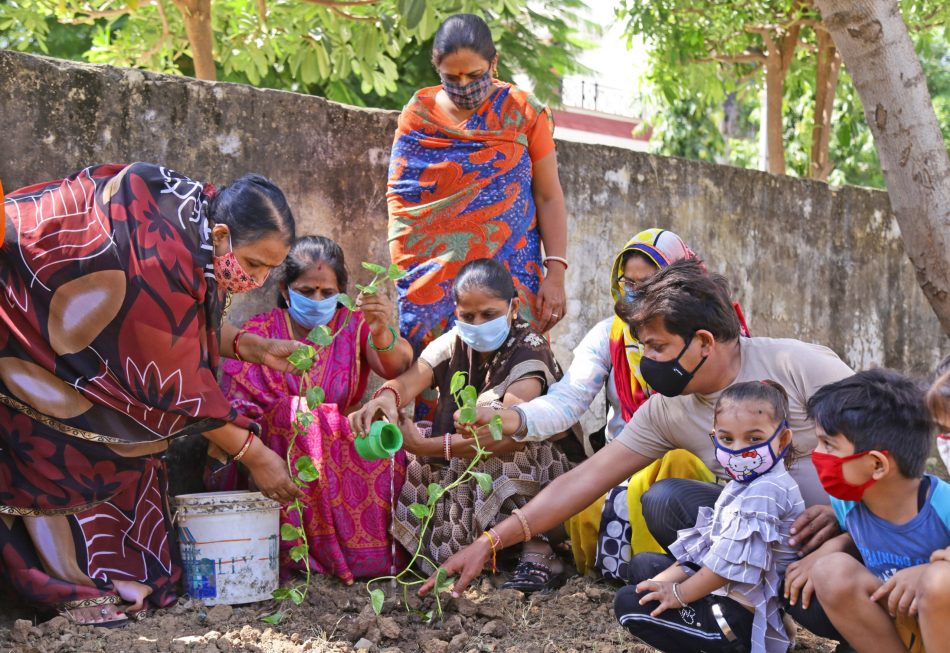Shyam Sunder Jyani is a professor of sociology in India, but his passion project for the last 15 years has been tree planting. He was inspired by the sparse tree coverage at the campus he worked at back in 2003. With help from his class, he was able to replace the dying trees around the college with healthy saplings, which were then looked after by his students.
Since then, in an effort to prevent desertification, Jyani has personally funded the planting of 2.5 million saplings across Rajasthan, one of India’s driest regions.
In his spare time, Jyani would travel from village to village to give away free saplings of ancient indigenous fruit trees, which are more likely to survive the harsh climate.
However, getting the trees into the ground is only the beginning of the battle. To grow and thrive in such unforgiving climates, the saplings need care and attention, especially as temperatures soar and droughts last longer, a consequence of climate change. This is why Jyani launched Familial Forestry, a project that encourages people to see their trees as members of their own families.
“Generally, people consider that when we did plantation, it’s over, but we say that ‘now our responsibility starts from that point.’ So, I requested them to consider that now our responsibility has increased, and we are to grow all saplings as a green member of [the] family,” explains Jyani.
When he visits villages, Jyani gives each family a tree to take home, which he teaches them how to plant on their property and water with wastewater.
“These trees will give us fresh air to breathe and fruit to eat. We’ve learned that trees need to be treated as members of our family, only then can they save our planet,” says Sunita Meghwal, one woman in attendance at one of Jyani’s sessions.
Jyani often ends up spending the greater portion of his salary on Familial Forestry. While his peers focus on furthering their academic research and careers, Jyani sacrifices his time for the tree planting project and the education of surrounding communities. His dedication to Familial Forestry at times makes it difficult for his own wife and children, who are left to care for themselves while he is tree planting on the road.
However, Jyani’s sacrifice and that of his family are finally not going unnoticed. He has been able to facilitate the planting of more than three million saplings in villages across Rajasthan in recent years, and in June of this year, the Familial Forestry project won the Land for Life Award from the United Nations Convention to Combat Deforestation. Since then, the media has been turning up at Jyani’s tree planting sessions for the chance to interview the dedicated tree planter.
“I’ve seen many activities when you donate a tree and then somebody else takes care of the tree on your behalf, but the idea of Familial Forestry is by seeing a tree as a member of the family, you will cultivate and care for the tree. Therefore, the survival rate of the trees in the region where Familial Forestry planted is significantly higher,” says UN representative Yukie Hori.
Jyani hopes that the recognition of Familial Forestry by the UN will attract donors and financial support so that he can continue fighting desertification and malnutrition while strengthening the region’s biodiversity.











